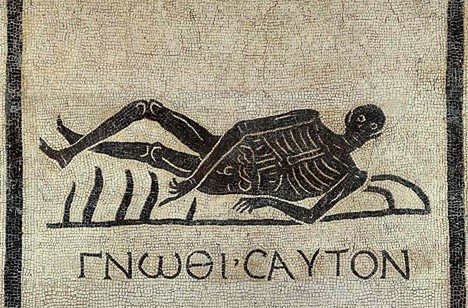If we do, how do we actually determine that the self exists?
Thank you, Danica Aposaga, for such a fundamental question.
First, if I may, I think it would be helpful to reverse the questions: how do we actually determine that the self exists, and, if it does exist, will we ever understand it? After all, we can determine something exists without understanding it. The self is a special case, however, because it has an effect on how we perceive and understand reality.
If we assume that there is indeed an objective truth or reality, then the self could be that with which we process and understand that truth. Let’s suppose, for example, that this objective reality is a pure white light, yet our understanding of that light has a pink shade to it; the “self” must therefore be some sort of pink filter (ignoring rose-colored glasses here). Science is meant to describe for us what this objective reality is, so that we can see past our own filter.
For philosophers like Michel Foucault and Pierre Hadot, the existence of the self is pretty clear, and I tend to agree with them. The difficult part, though, is gaining a true and objective understanding of the self. Both Foucault and Hadot proposed philosophy as a guide for looking inward in an attempt to identify, care for, and develop the self. For me, this type of philosophy provides more of an inferential description of the self: it doesn’t describe the self per se, but rather the effects of the self, sort of like identifying a black hole by seeing information disappear around it. To use our previous example: we can’t see the pink filter itself, but we know it is there because our philosophical endeavours have enabled us to pinpoint the moment that white light becomes pink.
All of this still leaves us wondering whether we can understand the self. I’ve essentially described the self as a sort of interpretive mechanism whereby the individual takes in raw, objective information and makes sense of it. So, the question “will we ever understand the self?” has become “can we understand the mechanism behind our interpretation of reality?” It’s very easy to end up chasing our tails here: for how can we understand something without first interpreting it? Perhaps the real benefit in identifying and attempting to understand the self is an ethical one: now that I have seen the effects of the self, I’m much less inclined to confuse my interpretation of reality with reality itself.
What do you think? How do you understand the self? Let us know in the comments.
If you have a question for the Armchair Philosophers, don’t hesitate to get in touch. You can find us on Twitter (@armchair_o) or fill in this form.
Be sure to check out our podcast!
If you like what we do, you can support us by buying us a coffee!
Image: A momento mori mosaic from excavations in the convent of San Gregorio in Rome, featuring the ancient Greek aphorism “know thyself”.
I received a BA in philosophy from the University of Texas at El Paso in 2008. After that, I spent roughly a decade traveling Europe and North America as a touring musician. Now I am working on a master’s in philosophy and philology at the University of Gothenburg in Sweden with the goal of teaching at the university level. Some specific areas of interest include medieval grammar and free will. Michel Foucault’s approach to the history of philosophy has been a huge influence on me, and his work on notions of the self and power structures bring history to the present.

